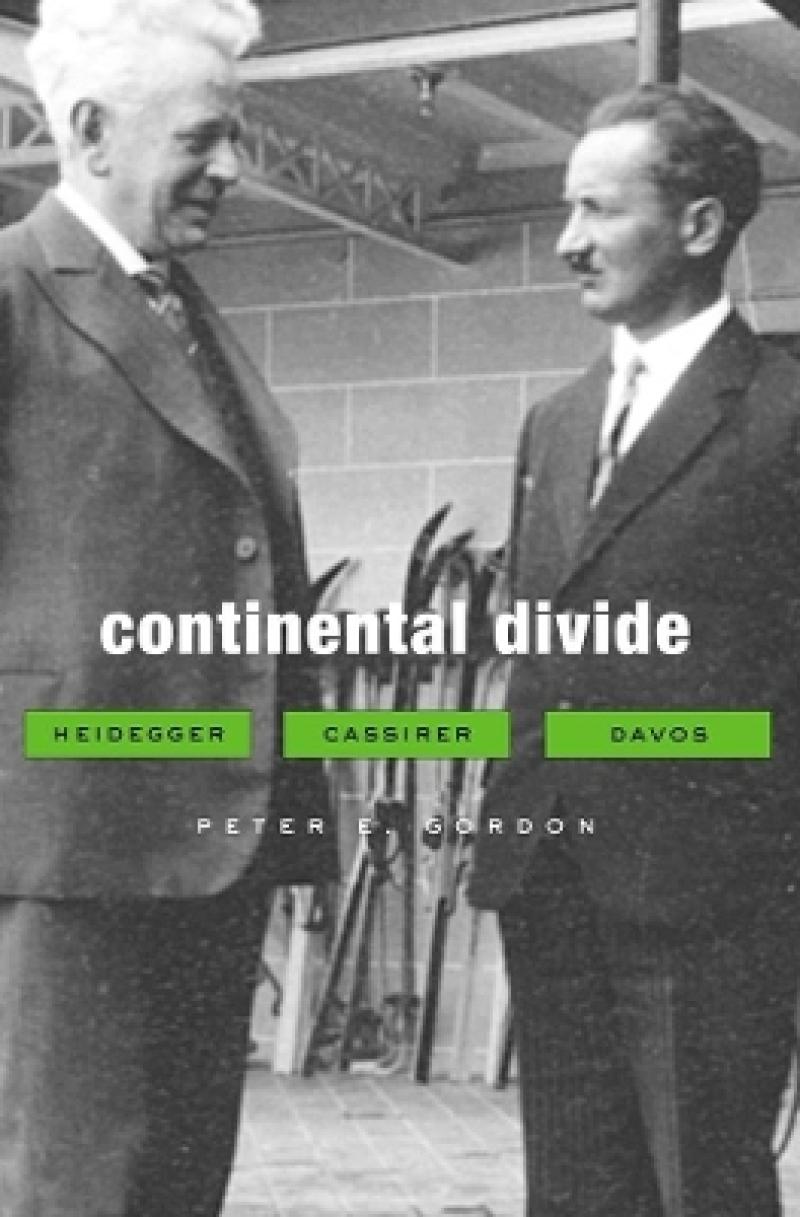When they met at Davos in 1929, Cassirer and Heidegger sent tremors through the world of continental philosophy that radically transformed the terrain of European thought. With the hermeneutic skill of a master seismologist, Peter E. Gordon identifies the forces that produced their explosive meeting and traces the aftershocks that continue to reverberate to this day.
- Martin Jay, University of California, Berkeley,
<i>Continental Divide</i> conjugates an even-handed reconstruction of the debate and its lasting significance with an astute analysis of how philosophy revisits its own past in order to define its present circumstances. Of interest to both specialists and generalists, this study sets the benchmark for all future discussions of the relation of Heidegger and Cassirer.
- Thomas Sheehan, Stanford University,
A paradigm of philosophically informed intellectual history, this fascinating, wide-ranging book provides a comprehensive account of an epic intellectual confrontation, and uses it as a lens through which to focus on the ideas, forces, characters, and personalities that shaped the debate at a crucial cusp of European thought.
- Robert B. Brandom, University of Pittsburgh,
In <i>Rosenzweig and Heidegger</i>, Gordon concludes with a reading of the 1929 debate between Heidegger and Cassirer at a philosophical conference at Davos, Switzerland...Gordon here returns to this primal scene and reconstructs the event with extraordinarily thoughtful and scrupulous precision. This debate has achieved legendary status in the history of contemporary thought and is regarded as opening an abyss between those who base philosophy on scientific reason, and the human power of reflection, and those who are haunted by the unthinkable, the unsaid, and the unsayable...By judiciously reconstructing Cassirer's and Heidegger's arguments, Gordon definitively unveils the subtle refinement of Heidegger's positions and shows with new clarity that this struggle over Kant's legacy has relentlessly unfolded over the 20th century. A work of exceptional significance.
- N. Lukacher, Choice
[An] extraordinary book...Each of its pages of sustained philosophical explication excites and astonishes, and in the process teaches us new ways of thinking about the history of ideas...After [Gordon's] brilliant reading, we can no longer simply ascribe Heidegger's and Cassirer's differences to inimical philosophies...Gordon's manifesto will resonate with historians of my generation.
- David Nirenberg, New Republic
<i>Continental Divide</i> provides the definitive narrative and analysis of the Davos incident, its background, its context and its aftermath. Gordon neither abstracts the philosophical debate from its contemporary setting, nor reduces it to its extraphilosophical ramifications. He has a masterly understanding of the philosophy, but insists that abstract ideas, too, very often wear layers of historical clothing...He sees that the hermeneutic disagreement was genuine and that real philosophical issues were at stake in the collision of Cassirer's celebration of rational spontaneity with Heidegger's concept of thrownness--the collision, that is, of idealism with existentialism. Gordon refuses to boil those ideas off in either uncritical historicism or easy political editorializing. He is not afraid to get his hands dirty, and his narrative never ascends to such a lofty historical perspecti ve that the philosophical air becomes too thin to breathe.
- Taylor Carman, Times Literary Supplement
In the spring of 1929, Martin Heidegger and Ernst Cassirer met for a public conversation in Davos, Switzerland. They were arguably the most important thinkers in Europe, and their exchange touched upon the most urgent questions in the history of philosophy: What is human finitude? What is objectivity? What is culture? What is truth?
Over the last eighty years the Davos encounter has acquired an allegorical significance, as if it marked an ultimate and irreparable rupture in twentieth-century Continental thought. Here, in a reconstruction at once historical and philosophical, Peter Gordon reexamines the conversation, its origins and its aftermath, resuscitating an event that has become entombed in its own mythology. Through a close and painstaking analysis, Gordon dissects the exchange itself to reveal that it was at core a philosophical disagreement over what it means to be human.
But Gordon also shows how the life and work of these two philosophers remained closely intertwined. Their disagreement can be understood only if we appreciate their common point of departure as thinkers of the German interwar crisis, an era of rebellion that touched all of the major philosophical movements of the day—life-philosophy, philosophical anthropology, neo-Kantianism, phenomenology, and existentialism. As Gordon explains, the Davos debate would continue to both inspire and provoke well after the two men had gone their separate ways. It remains, even today, a touchstone of philosophical memory.
This clear, riveting book will be of great interest not only to philosophers and to historians of philosophy but also to anyone interested in the great intellectual ferment of Europe’s interwar years.
